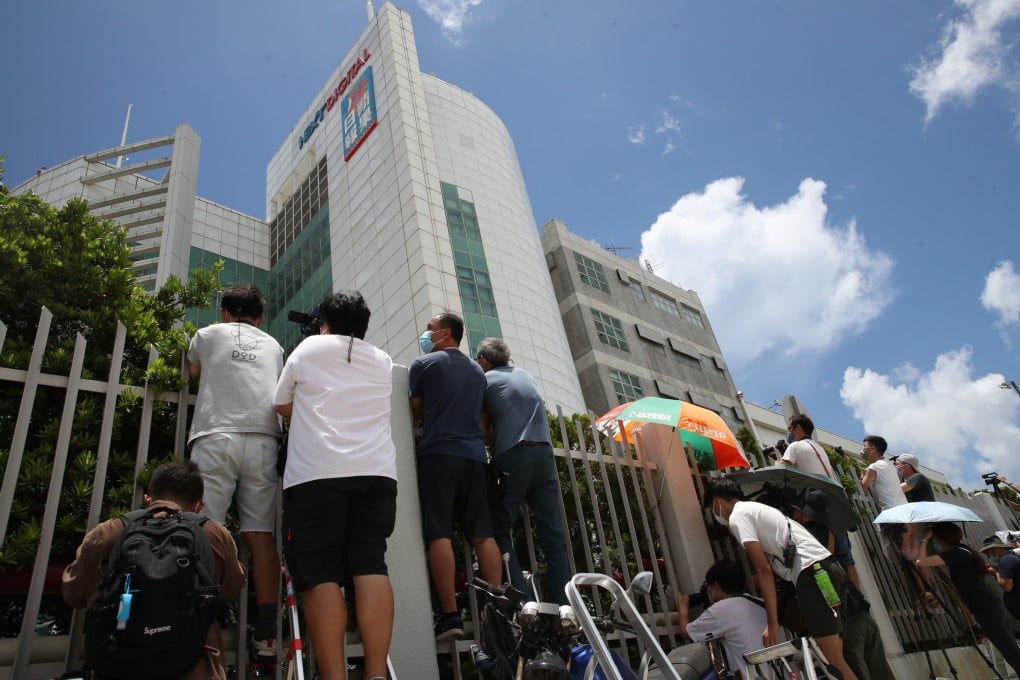Explainer | Hong Kong national security law: what did Apple Daily do, what is it accused of, and what does the future hold?
- Editor-in-chief, publisher and three other senior executives arrested in Thursday morning raid
- They have been accused of breaking Article 29 of the security law, which bans collusion with foreign forces

Hong Kong police arrested the editor-in-chief, publisher and three other senior executives of Apple Daily in a Thursday morning raid on suspicion of breaching Article 29 of the national security law which bans collusion with foreign forces.
Officers also searched the newsroom – the second large-scale raid on the tabloid in about 10 months – while assets belonging to the tabloid and two related companies, Apple Printing and AD Internet, amounting to some HK$18 million were also frozen.
While some journalists and scholars said the raid was a blow to press freedom in the city, Beijing’s top envoy in Hong Kong endorsed the clampdown and government officials said the media had nothing to worry about if they concentrated on reporting the facts.
What is Apple Daily and who were the employees arrested this week?
Launched in 1995, Apple Daily is owned by the Next Digital media group founded by Jimmy Lai Chee-ying, now in jail on a string of charges. The tabloid is known for being critical of Beijing.
While police only disclosed that five people, four men and a woman, aged between 47 and 63, were arrested in the June 17 raid, they were named by Apple Daily as Cheung Kim-hung, its publisher and CEO of parent company Next Digital; Chan Pui-man, associate publisher; Ryan Law Wai-kwong, editor-in-chief; Royston Chow Tat-kuen, the company’s COO; and Nick Cheung Chi-wai, platform director of Apple Daily Digital.
The five were still being detained for questioning as of 11am on Friday.
